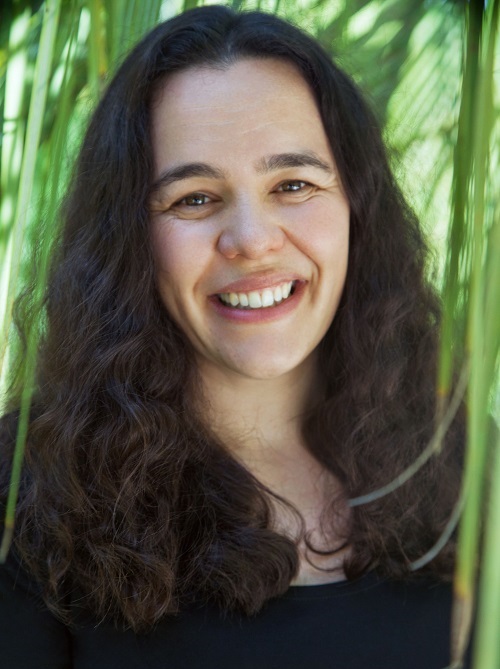About the department:
Montana State University is the state’s land grant institution. It creates knowledge and art, and serves communities by integrating learning, discovery, and engagement. The Department of Microbiology and Immunology plays an important role in this mission by providing research, teaching, and service in topics ranging from environmental microbiology, molecular genetics, host-parasite interactions, and disease ecology, to developmental immunology and pathogenicity.
About the research:
The Branco Lab studies the ecology and evolution of fungi to further understand the ecological factors that generate and maintain fungal diversity. Specifically, we use a combination of field, laboratory, and computational approaches to investigate how fungi colonize and persist in the environment. Our studies range across biological scales from ecological communities to genomes and genes, emphasizing evolutionary adaptation to hostile environments.
On being a new faculty member:
What has been the biggest surprise so far about being a new PI?
Starting a lab and developing a research program is not easy, and there are many moments of panic and feelings of impending doom. However, I’ve been very pleasantly surprised with how much fun implementing new projects has been. From working with very enthusiastic students to lengthy discussions with hardware store personnel on the really important questions (e.g., “Will a plastic ladle shatter when dipped in liquid nitrogen?”), there are daily gratifying moments that have been making my experience as a PI so much better.
How was your first faculty meeting?
My first faculty meeting was an all-day gathering to discuss faculty promotion rules. It was long and intense, and I felt like a fish out of water… But it ended being very useful, as I had the opportunity to learn not only about the criteria for promotion, but also how faculty, department, and university think and discuss the topic.
On SSE membership:
I became a member of SSE early in my PhD. I joined the society because I wanted to attend the Evolution meetings and to learn and interact with (so many!) evolutionary biologists working in all aspects of evolution. I still remember being nervous and completely overwhelmed at my first meeting but thrilled to be exposed to such a wide range of topics.
Besides research, how do you promote science?
I have been involved in science outreach since I was a student. I participated in several programs, including the Field Museum of Natural History’s activities targeting Chicago inner city high school students and teachers, the Oakland School Unified School District’s “Dinner with a Scientist”, Expanding Your Horizons, and “Science Neat!”, a science outreach event at a bar in San Francisco. In my current position, I continue to promote science for general audiences and have a special interest in reaching under-served communities. In particular, I am working to develop new initiatives aimed at providing learning opportunities to tribal college students in Montana.
Do you teach evolution? What concepts blow student’s minds?
I teach a large course on General Microbiology where I introduce students to evolutionary concepts. Being a class on microbes, it covers bacterial, archaeal, and eukaryotic diversity, and students get really blown away by the fact that the vast majority of life is microbial, even within eukaryotes. They are even more surprised to learn the relationships across groups (e.g., archaea are closer to eukaryotes than bacteria, and fungi are more closely related to animals than anything else!) and that there were multiple endosymbiotic events that shaped the biodiversity of life we see today (and make interpreting the tree of life so much more confusing!).
Tips and Advice
Do you have a time management tip to share?
It is important to organize your days into time blocks. I assign time to specific tasks, so I can control what I do on a daily basis. It is also important to realize your strengths. For me the mornings are much more productive, therefore I allocate one to two hours first thing in the morning to writing before I even answer email. I keep track of my writing time with ATracker, a free time tracking app, so I know how much time I spent writing per week/month/semester. I also try to schedule meetings in the afternoon, as to dedicate my morning productive hours to more intellectually demanding tasks.
What one piece of advice would you give to a postdoc?
The postdoc period is full of ups and downs that are not necessarily easy to navigate. My advice to postdocs is to have a clear goal for your next step, whatever that may be, and do your best to progress in all the fronts needed to achieve it. If you are interested in an academic job, focus on publishing research papers and grant proposal writing. If you aim for a teaching-oriented job, gain teaching and course development skills. Learn how to navigate the job market and industry demands if you plan to join the commercial sector. And it really helps to have mentorship throughout this process, so I would also recommend seeking advice from several people with distinct backgrounds, so you obtain different perspectives and make the best decisions for your future.
What is something most people don’t know about you?
I played canoe polo back in the day, and my team got the bronze medal at the Woman’s Portuguese National Canoe Polo Championship in the late 90s. I’ll add that canoe polo is not a popular sport in my home country, so maybe the fact that there were only three teams competing might have aided getting a medal…
 Dr. Sara Branco
Dr. Sara Branco


